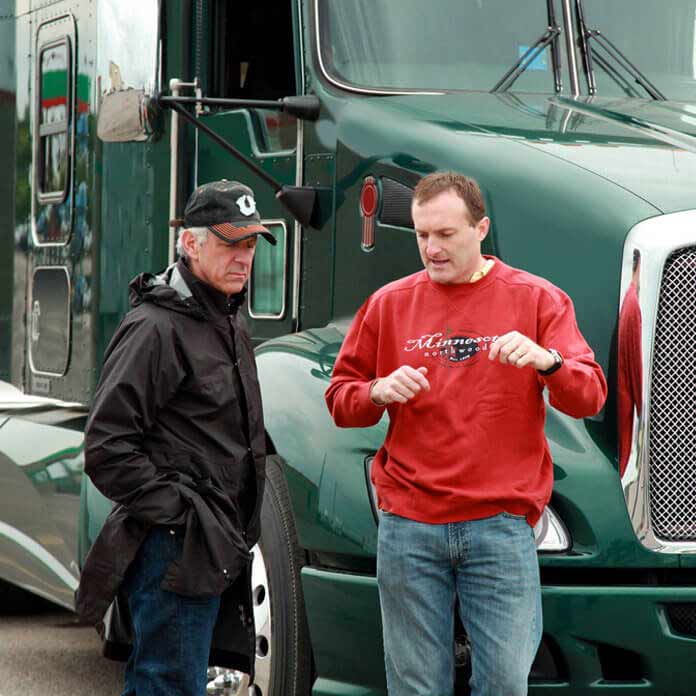Yes, if truck debris hit your car and you were injured, you may have the right to sue for compensation, including money for medical expenses, lost wages, pain and suffering, disability, disfigurement and other damages to you and your family. These cases generally involve loads that were not adequately secured where something either falls onto the road, creating a hazard, or crashes through a car windshield.
Our lawyers have won multimillion-dollar settlements for client in these kinds of cases.
Request a Free Consultation with a Lawyer

In some cases, it is more than “debris” that falls off of a pickup or commercial truck and harms others, for example, past incidents have involved huge hay bales, logs, mattresses, and other large items. You will also generally have a lawsuit if a tire comes off of a semi cab or trailer, hits your vehicle, and causes personal injury or wrongful death. Attorney Eric Hageman has won settlements for injured people and their families in these kinds of cases.
If you or a loved one was injured, you are probably wondering how you can protect your family, make sure all of the hospital bills are paid, and have enough money for the future. You can contact our law firm for a free consultation with Eric and his team of lawyers.
When Does Getting Hit by Truck Debris Result in a Lawsuit?
For there to be a lawsuit for injury from debris, the commercial truck driver of a company would have to have been negligent (legally careless) in some way. Here are three real-life examples:
- As a dump truck is traveling down the road, one of its tires comes off, rolls off of a bridge and falls to the road below. The tire breaks through the windshield of a car traveling on the road below and kills the driver. In this case, the family had a wrongful death claim against the owner of the dump truck.
- Mattresses in a delivery vehicle are not adequately secured, resulting in mattresses being dumped onto a highway. A car traveling behind the delivery vehicle hits a mattress. The car rolls in the ditch, killing the driver. Again, the family had the right to file a wrongful death lawsuit.
- Metal from a tow truck flies through the windshield of a semi and severely injures the semi driver, whose head is crushed. That driver suffers permanent, severe traumatic brain injury and the loss of one eye. He and his wife sue for money damages and get a multimillion-dollar settlement.

Can I Sue the Truck Driver, the Trucking Company, and the Owner of the Load Being Hauled?
Yes, if the evidence supports your claim, you can sue the truck driver, the trucking company (or construction company, etc.), and the owner of the load being hauled. You may also have a lawsuit against another company, including the owner of the freight being hauled, the manufacturer of a defective part (trailer hitch, tire nut, etc.).
If your child was injured, our lawyers can help you file a lawsuit on behalf of your child, and you may also have a claim (lost wages, loss of companionship due to severe brain injury, cost of care). If a family member died, you may have a wrongful death lawsuit.
One of the first things we do is take legal action to get corporate documents that will help us determine who you can sue.
Special Laws Requiring Commercial Drivers to Secure Their Loads
A commercial truck driver has to follow state and federal laws enacted to prevent debris from getting loose and flying into another vehicle.
According to federal regulations:
A driver may not operate a commercial motor vehicle and a motor carrier may not require or permit a driver to operate a commercial motor vehicle unless—
(1) The commercial motor vehicle’s cargo is properly distributed and adequately secured.
(2) The commercial motor vehicle’s tailgate, tailboard, doors, tarpaulins, spare tire and other equipment used in its operation, and the means of fastening the commercial motor vehicle’s cargo, are secured.